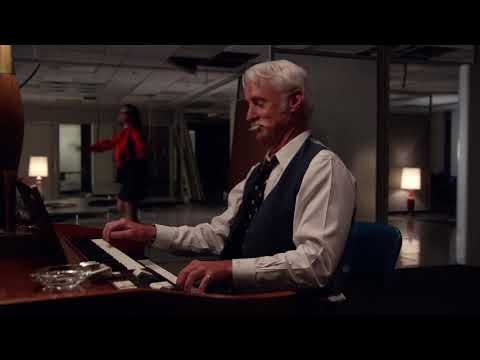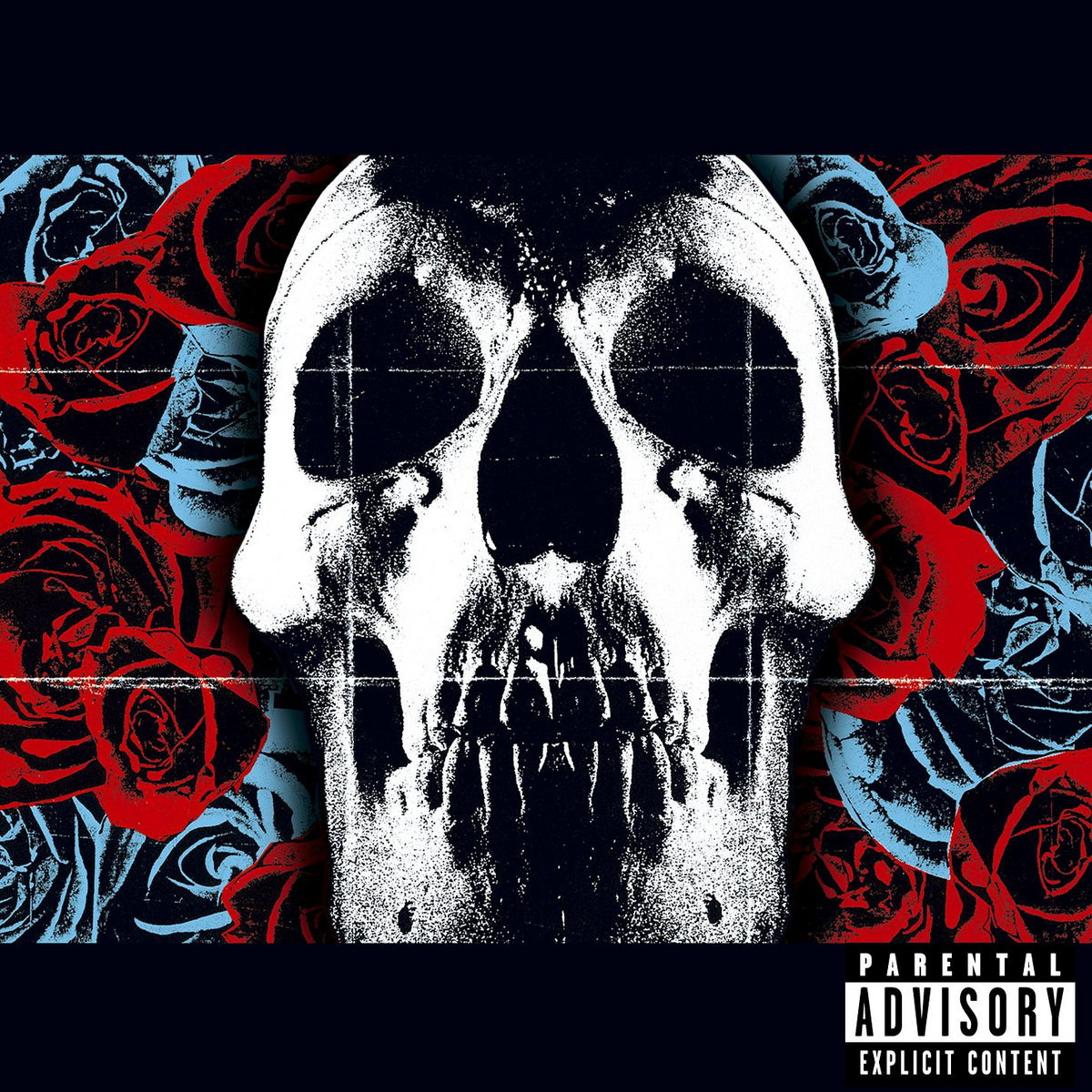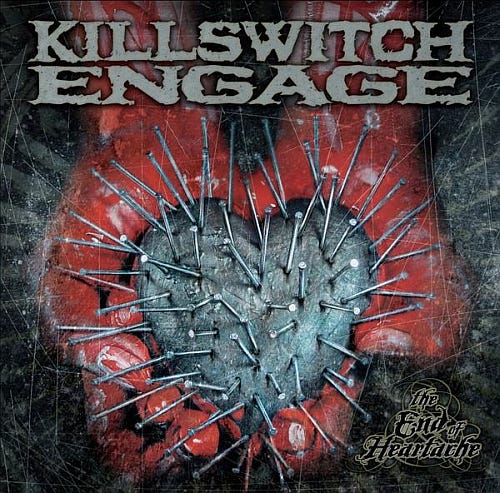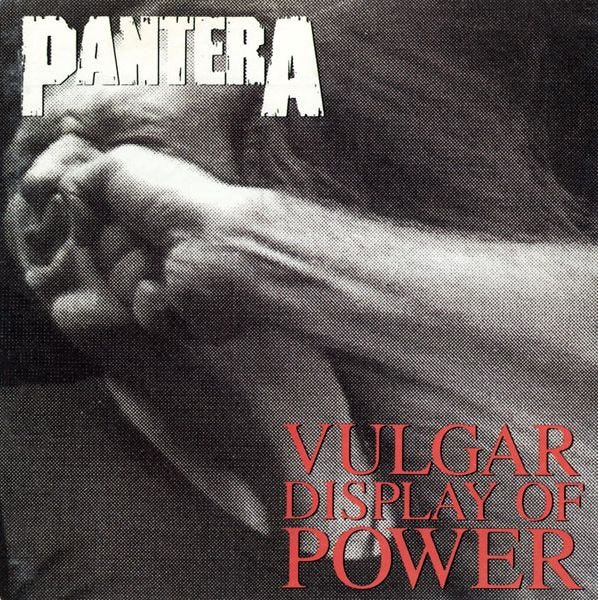Happy Friday! This letter concerns the endings of a few different works of fiction including Mad Men, The Conversation, Gravity’s Rainbow, Neon Genesis Evangelion, and maybe if I have time for it 100 Years of Solitude. I don’t go too deeply into the specifics of any of the above, however if you are even mildly spoiler-averse it is my duty to give you a proper warning. Of course, grouping these works together may be spoiler enough for you, in which case you might as well read the rest since the damage is done.
What is it about an empty room that demands music? This question occurred to me while I was preparing to move into a new apartment, where I am writing to you now.
A week prior (two weeks ago now) it was the anniversary of the finale of Mad Men. Though I’m prone to considering the significance of Jon Hamm’s smiling visage on the shores of the Pacific Ocean at the drop of a hat, this year the anniversary called to mind a different scene from the show’s closing season. Staring at the suddenly barren walls of a room that I had occupied for nearly four years, I recalled Peggy Olsen and Roger Sterling (played by Elisabeth Moss and John Slatterly respectively) sharing a bottle of Vermouth in the wreckage of the SCDP offices. Peggy and Roger are the last two holdouts, the rest of the team having either been fired or absorbed into their new owners at McCann Erickson. The SCDP office, which served as the stage for the majority of the show from Season 4 onward, is in shambles, conveying none of the cutting edge sophistication its mid-century design was meant to invoke. Instead it looks like what it is: a set in the process of being torn down. Like a lot of TV shows Mad Men gradually became a show about the process of its own creation. In these moments between Peggy and Roger the fourth wall feels especially translucent. You barely have to wipe the surface of their boozy-wistful reminiscence to see a reflection of the writers and actors’ own thoughts on the end of the show. Later in the episode after night as fallen, Roger plays a tune at an electric organ while Peggy skates in a slow circle through the empty halls.
Apologies if this sounds dramatic but moving can feel a little like an act of self-destruction. Due to a confluence of factors both within and out of my control I probably spent a higher percentage of the day in this room than any other that I’ve paid money to live in. It is only natural that I imbued part of myself to the space itself. I stayed long enough to develop a relationship to every square inch of the room. I learned where to best put which objects, where the light fell at what time of day and how to arrange my activities accordingly, where my roommate’s cat was most likely to enact mischief against me, etc. Eventually those relationships sunk into the background. They sank so deeply that without realizing it I mistook them for reality. When I started packing, that understanding proved to be as durable as cobwebs. This wasn’t “my room”, just “a room”. The “me-ness” that I gave the room was now crushed, shredded, and stuffed into bags on the floor.
During one particularly vigorous cleaning session I looked up to find my roommate’s cat staring at me from the doorway. Reading the facial expressions of cats is practically nature’s Rorschach test, but believe me when I say that the little dude looked SHOCKED. I tried to imagine what I must have looked like to him. The only thing that came to mind was Gene Hackman. In the final scene of The Conversation, surveillance engineer Harry Caul (Hackman) destroys the walls and floor of his apartment, convinced that he’s been bugged. The film closes on Caul, having found nothing to support this paranoia, playing saxophone in the ruins of his own making. It’s been years since I’ve seen The Conversation but this closing sequence is the kind that sticks with you even after the context has faded.
Both of these endings remind me of a concept I heard about once on the podcast ‘Death Is Just Around The Corner’. In one of the many episodes about Thomas Pynchon’s Gravity’s Rainbow, host Michael Judge brought up the idea of “The Modernist Gambit”, a literary device in which the events of the story are revealed to be part of a constructed narrative, usually on a theatrical stage. Google’s search engine being more of a post-modern gambit these days, the only source I could find to back up this concept is an essay by academic Arnold Weinstein from a literary magazine in 2007. The essay is behind a paywall, so apologies if I’m botching the finer points of the concept. From what I understand the purpose of this move isn’t to “gotcha” the audience with a high concept twist. It isn’t about saying “it was all a dream” or that none of the events of the story are “real”. Used correctly the gesture can evoke far more complex feelings. In Gravity’s Rainbow Pynchon pulls back from the fascist superhero cartoon that’s taken over the narrative near the end of the book (look, the book is insane just roll with me here) to reveal that the whole world is watching from an impossibly huge theater, the furtherest aisles from the stage essentially a global slum. This passage took my breath away when I first read it. If “the story” told by the powerful is only a story, does that mean that we can replace it with a different story? Perhaps one that doesn’t leave the audience destitute?
(Ok since I said I’d talk about it if I had the time, I’d like to quickly say that the ending of Gabriel Garcia Marquez’s 100 Years Of Solitude similarly knocked the wind out of me. While the politics of Solitude share some important overlaps with Gravity’s Rainbow, I think Marquez’s revelation that all of the events of the story were written out in advance carries a far more deterministic and pessimistic tone than Pynchon’s subjunctive “what ifs”)
The ending of Neon Genesis Evangelion pulls a similar trick and poses a similar question. After the events of the story have concluded protagonist Shinji Ikari finds himself in an empty theater left to contemplate how his life, and by proxy the show, could have ended differently. Shinji spends the final episode alone with his thoughts, represented by the rest of the cast. His train of thought gradually strips the show down to the studs, first reducing it to still images delivered in Godard-esque montage and then to a Duck Amuck-style blank page. It’s only once he’s torn down all of the show’s style and “reality” that he can rebuild (ha ha) himself into someone who could potentially live a life worth living. The show’s score seems to realize Shinji’s potential for happiness before he does, softly building to a laid back re-orchestration of the iconic “Cruel Angel’s Thesis” theme as he puts the pieces together. The show never depicts Shinji’s self-actualization. Just the potential suffices for a happy ending.
Now I find myself in another empty room. This room has nothing left to tear down, only space to build something new. What music will I fill it with?
# # # # # The Self Promo Zone # # # # #
New tune alert!! Fictiones just dropped their latest song “Stardust”, featuring yours truly on drums. This song has been on a few Fictiones setlists under a few different names, but this recorded version features a new intro and an extended coda that we came up with in the studio. This one is an absolute blast to play and takes all sorts of unexpected turns. You can listen to it below, and you can see us play it live at the Kaleidoscope Gallery on Saturday, June 1st.
While we’re talking upcoming shows, I’ll also be playing drums for Laughing Stock on June 5th. We’re returning to Gold Sounds in Bushwick alongside the homies in Retail Drugs, as well as Pynkie and Mariah Houston. I have a sneaking suspicion that Laughing Stock are going to have a big summer this year, so come kick it off with us!
I was delighted to see the GUNK compilation For Palestine, for which I contributed a stripped down cover of the The Style Council’s “A Stone’s Throw Away”, featured in this Pitchfork round-up of compilations raising money for Palestine. If you’ve already grabbed the GUNK comp, there are plenty more great options where that came from. And if you haven’t picked up the GUNK comp… there’s no time like the present!
If you enjoyed the intro to today’s letter I think there’s a solid chance that you’ll enjoy my latest album of solo material. It’s called The Lonely Atom and let me tell ya, there is a LOT of Mad Men and The Conversation in its DNA, along with my usual musical concerns like sick riffs and heartbreaking melodies. It’s dope as hell and I think you should give it a whirl.
~ ~ ~ ~ ~ Listening Diary ~ ~ ~ ~ ~
Here are five songs that I enjoyed listening to recently! You can find a playlist with all of this year’s tracks here, new tunes added every Monday-Friday.
“A Death Though No Loss” by Chapel of Disease (Echoes of Light, 2024)
In my response to Eli Enis’s state of metal essay last month (btw, Enis’s follow-up interview with the singer of Spiritbox is a great addendum to that piece that helps clarify some of the social aspects of his critique), I mentioned that metal needs to get in touch with it’s 80s NWOBHM roots if it wants to grow the next generation of superstars. This German death metal are a great example. The lead guitar part fucking rocks, and the commitment to rock’n’roll swagger (again Tribulation are vindicated) keeps them from losing themselves in melo-death filigree.
“My Father Took Me Hunting in the Snow” by Sunrise Patriot Motion (My Father Took Me Hunting in the Snow, 2024)
A real oddity, yet perfectly in the spirit of underground metal’s gothic shift. I hesitate to even call this metal, despite the band’s connection to the NY black metal act Yellow Eyes. Exactly where this gem of an EP belongs in your collection is for you to figure out. But make no mistake, it belongs in your collection. Absolutely gorgeous guitar parts, haunting production and a vocalist who sounds genuinely unwell. One of the highlights of the year so far.
“Tropic of Cancer IV” by Sons of Ra (Tropic of Cancer, 2024)
Sons of Ra are a Chicago fusion act featuring some people that I used to play shows with back when Lamniformes was playing The Burlington every few months. I had no idea they had chops like this back then, if I had I might have felt more comfortable getting my own prog on. The album is a single straight through piece, but this chunk works great on its own. Picture a slow jam halfway between Cynic and Jean-Luc Ponty and you’ll be in the right ballpark.
“Superstitious Vision” by Gatecreeper (Dark Superstitions, 2024)
Like Chapel of Disease, what makes Gatecreeper stand out from the glut of melodic death metal bands is their ability to indulge in the simple pleasures of rocking and rolling. Listen to how straight forward the drumming is here, no frantic double bass or kit-demolishing fills, just a groove that would fit right at home on an AC/DC song. And by god, is that an actual chorus??? With a hook and a memorable lyric??
“Eye for an Eye” by Last Exit (Iron Path, 1988)
Shout out to Phil Freeman’s column at Stereogum for putting me on to this one. Very funny to see a jazz record with identical branding to a mid-90s metalcore album. Imagine if Gene Hackman had busted out the sax first and used the almighty power of The Honk to destroy his apartment instead of getting manual with it. These saxophones could level a whole city block at the right volume, so be warned!
\ \ \ \ \ Micro Reviews / / / / /
Here are five micro reviews from my high school and college CD collection. Long time Lamniformes Instagram followers will recognize these from my stories back in late 2020, however they’ve been re-edited and spruced up with links so that you can actually hear the music instead of just taking my word for it.
Deftones by Deftones (2003) - Nü-Metal
I bought this after picking the meat off of White Pony. While I enjoyed it, Deftones left me unsatisfied for reasons I couldn’t put my finger on. It is generally considered to be a step down from its predecessor, as a result of internal conflict and ill-health within the band. Returning to it now, I think this is a good example of a mid-career self-titled actually corresponding with a shift in sound. This is where Deftones slid, intentionally or not, from nü metal to post hardcore. I actually like this a lot more listening to it with that in mind. Also, it features two of the prettiest soft Deftones tracks.
The End of Heartache by Killswitch Engage (2004) - Metalcore
Correct me if I’m wrong, but this feels like the record that broke the metalcore sound into the heavy music mainstream in the early 00s. I’m specifically talking about the “good cop/bad cop” vocal style. Not coincidentally this was their first album with Howard Jones on vocals. It is really damn good. Huge choruses to very tightly written songs. Aims for the cheap seats in the way the best big metal albums do. Jones sounds amazing on this record. They have better songs on other records but this is their best top to bottom.
A Vulgar Display of Power by Pantera (1992) - Metal
I bought this at the Virgin Megastore in Manhattan after Dimebag Darrell was murdered. Still very shocking to think about that moment. Horrifying for any performing musician. I don’t listen to this band much anymore because their singer is a racist douchebag. Undeniably an influential record, both sonically and stylistically, but if we’re being honest it really drops off in the second half.
Far Beyond Driven by Pantera (1994) - Metal
I remember my dad walking in while I was blasting the “we’re fucking you back!” part, bursting out laughing and then leaving the room without saying anything lol. For the first four tracks this thing kicks an ungodly amount of ass, and then it promptly becomes a slog. Some heavy shit about addiction and dysfunctional families on this. Wild that it went to No.1 when it came out.
Divine Intervention by Slayer (1994) - Thrash Metal
Slayer’s first album without Dave Lombardo on drums. Love the Magic: The Gathering looking album cover. 3BB, sacrifice your cred as the hardest band in the underground to survive into the 21st century. Painfully boring record. Basically the same as any other Slayer record but worse in a pervasively general way. Too many songs about eroticized murder. Skip.








